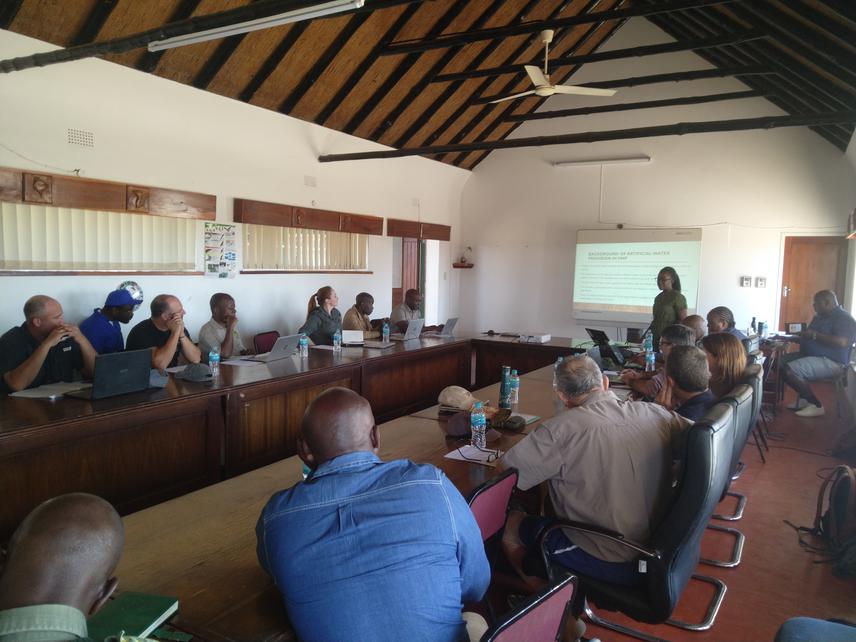María Elisa Sandoval Serés
Other projects
30 Jun 2020
Impact of Interspecific Competition on African Wild Dogs (Lycaon pictus) in an Ecosystem with Artificial Perennial Water Provision
16 Jun 2022
Impact of Interspecific Competition on African Wild Dogs (Lycaon pictus) in an Ecosystem with Artificial Perennial Water Provision
One of the largest parks in Africa inside the world’s largest transfrontier conservation area is Hwange National Park (HNP), Zimbabwe. HNP is semi-arid where in the dry season animals depend completely on artificial waterholes. Hot temperatures and climate change accentuate how crucial water becomes for wildlife. HNP is home to several endangered species.
The current water management system in HNP is a non-thought reaction to the need to supply water, especially for elephants due to tourism pressure. Managing waterholes without proper planning can have implications on wildlife, tourism and local socio-economic development. Surface-water availability drives the distribution and abundance of herbivores (especially elephants), and in turn: carnivores’ aggregation, plus distribution grazing/browsing pressure (which affects vegetation structure). Hence, water distribution can indirectly affect the conservation of endangered species, such as African wild dogs. Moreover, elephant densities tend to increase with waterhole density. Changes in water provision practices or severe droughts could provoke an elephant die-off, which could result in poor public relations. Currently, there is no national water management plan for artificial water provision in Zimbabwe. A scientific water management legal plan is a high-priority need.

First workshop to plan a Water Management Policy in Hwange, Zimbabwe. ©ZIMPARKS.
Thus, we aim to help wildlife conservation thrive in Zimbabwe through a scientific water management plan in protected areas that benefit wildlife, stakeholders and local communities. Our primary outcomes are:
1. A formalised legal scientific-based water management plan with the collaboration of key stakeholders (policy brief creation).
2. An integration of the policy brief within ZIMPARKS and key stakeholders.
We plan to contribute directly to a water management plan for wildlife conservation through a focused policy brief, theory of change scheme, guidance tools for monitoring and evaluation, and communication documents.
Header: Some participants of the first workshop to plan a Water Management Policy in Hwange, Zimbabwe. ©ZIMPARKS.